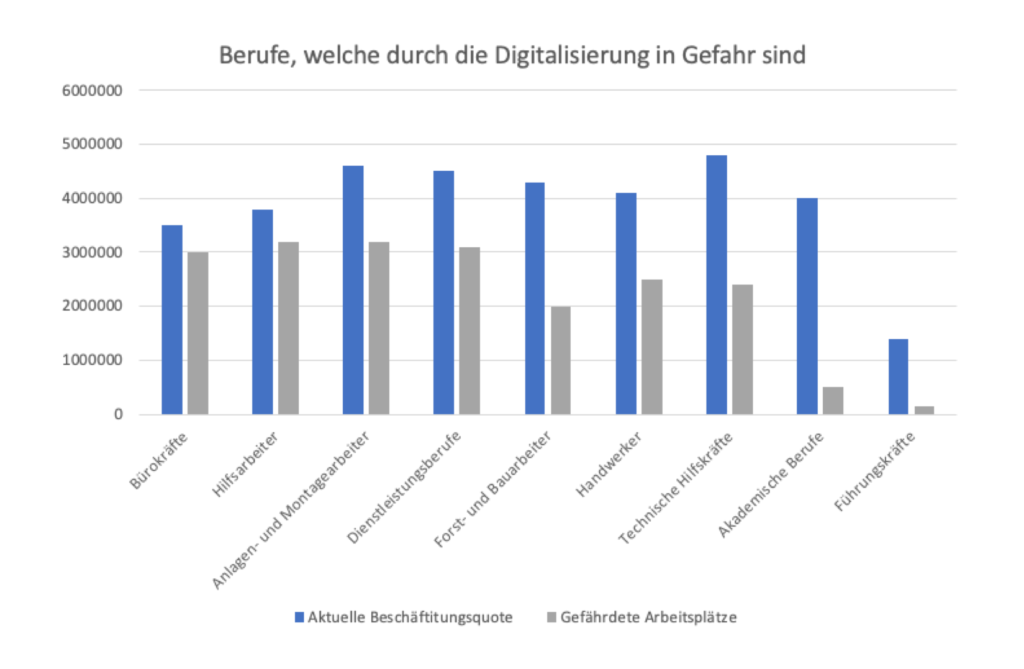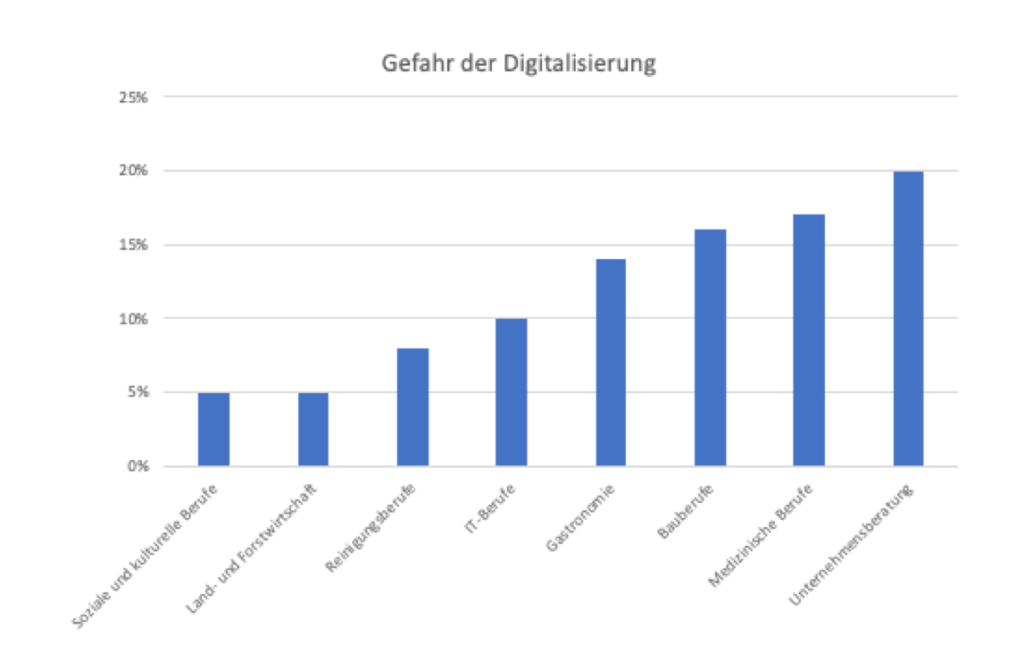Lately are piling up bad news . Deutsche Bank wants to cut 18,000 jobs and is not alone. Siemens wants to cut 10,000, 7,000 at Volkswagen, 5,400 at Ford, 4,500 at Bayer, 4,000 at Thyssenkrupp and cable giant Leoni is also planning to cut 2,000 jobs.
On the other hand, we also have good news. Volkswagen would like to create 2,000 new jobs at the same time, Siemens also wants to create around 2,500 new jobs and also Thyssenkrupp wants to create 1,000 new jobs.
In total, more than 65,000 jobs were cut in German corporations this year, but the job market is still going more than 700,000 skilled workers searched. But how does that fit together?
Downsizing in Germany
Ever more intelligent machines are changing our working world and demanding new skills or automating entire professions. Robots do not need a vacation and do work without fatigue and grumbling. Of course it will take a while until this vision becomes reality, but the first consequences are already visible.
ING-Diba has examined 4 million jobs and made an initial forecast for the next 10 years, which professions are particularly at risk and could be eliminated. Take a look at the statistics.

They notice that occupations in administration and unskilled labor as well as counseling are at risk. This is often due to intelligent software, forecasting tools and chatbots. But intelligent robots could also provide a remedy for physically strenuous work in the construction industry and handicrafts.
Lack of skilled workers in Germany
According to the Federal Employment Agency, companies are currently looking for 700,000 skilled workers in the fields of industry, retail and the service sector. But which professions are future-proof from the current point of view?
The Boston Consulting Group examined which professions are least at risk from digitization and analyzed 7.7 million employees. In the following I will show you a statistic about this.

Of course, professions that are difficult to digitize, such as care for the elderly, crafts, teachers, lawyers, educators or protected professions such as tax consultants or notaries will still exist for a long time. On the other hand, you will also notice how professions with human competence such as empathy and empathy are still future-proof. These are executives, business consultants, medical professions, and educators. On the other hand, the IT industry will also grow strongly and IT competence in general will become increasingly important.
Conclusion
A lack of skilled workers is becoming one of the greatest obstacles to growth in the age of digitization. We are changing from the classic industrial society to the digital society. The consequence is that, on the one hand, jobs are massively cut and, on the other hand, they are also being built up again.
In endangered professions, it is important to consistently develop further with the help of new IT skills and to change the job profile. For example, a clerk can use IT skills to configure the automation software or a construction worker can operate intelligent machines.
As employees, we should start to take 100 percent responsibility for occupational safety #Employability, as companies can no longer assume this responsibility for employees. Nor can you rely on the educational systems in companies, you have to continue your education through active learning in your free time. Already a Haufe survey shows that more than a third of over 1,000 employees surveyed already receive further training on the weekend and in their free time.




